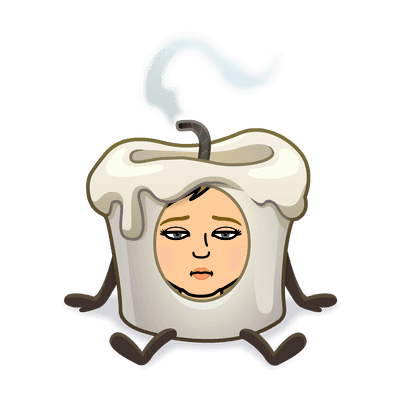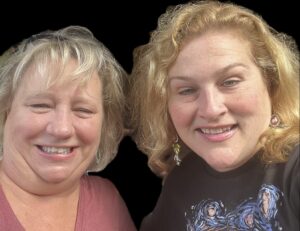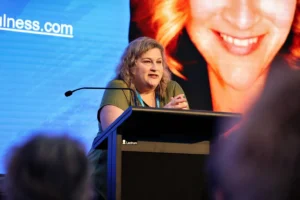I will let you down.
It feels so good to write that down and to admit it publicly.
For so many of us who are survivors of trauma working in the field of trauma-informed and trauma-focused care, we can be phobic of letting others down because we do not want to cause more harm to people. For me, this reality causes many problems in setting the boundaries that I need in order to truly take care of myself. Usually, the hesitancy to say “no” or to set limits with others comes from a legitimate place of not wanting to wound people, even though I know that I am not responsible for others’ feelings and reactions. Yet I’ve recently discovered that some of my hesitancy is still rooted in the Gospel of “What will people think?” Good, compassionate people (or at least those who seem to be) are highly venerated in the Western Christian culture in which I was raised. A teacher I work with recently helped me to see that a fear of no longer being seen as a “good person” when I say set stronger boundaries is a big part of my problem.
So there’s a great deal to unpack here and I warn you once more, especially if you have me on some kind of pedestal or admire me, I will likely let you down. I’m sure my privilege will show up in a few places in this article. Yet in the spirit of transparency and vulnerability that I so value, I need to run the risk of it showing up in order to talk/write this out, knowing that it may cast me in a different light. But perhaps there will be a few useful kernels in here that may be helpful to some of you burned-out therapists, teachers, and human services professionals.
I am in the middle of a very strange year full of self-evaluation and reflection on who I am and how I want to be in the world for the rest of my natural life. Prior to the pandemic, I’d planned on 2021 being a year of sabbatical from travel, teaching, clinical work, and consultation. I needed to rest and be fully dedicated to creative pursuits. With the reality of 2020 keeping me home and requiring me to completely change my training business model, plans changed. Necessary business restructuring and shifts in personnel required me to attend more to business this year, still taking a pause from clinical work and clinical consultation to allow for sufficient creative time. Many connections revealed themselves, even with this partial sabbatical. While I still believe in the gift of therapy, especially the right kind of therapy that meets people where they are and is free of dogma or an agenda, I’m not sure if I ever want to be a therapist again, at least in the conventional sense. Or if I do return to therapy, I need to find a way to be authentic while setting better boundaries that keep me from being beaten up by other peoples’ transference.
I am now pondering if it’s my own co-dependency still in the process of healing, or that tendency to be seen as a “good” therapist and do “good” work with my clients that at some point caused my vocation to turn on me. Or perhaps my frustration with our dysfunctional system of therapy access in the United States, and the awareness that I have a successful training business is because graduate clinical education in the U.S. doesn’t do the job it needs to in order to prepare students for the real, trauma-laden world, causes a constant values clash. Most days I feel complicit in these therapy/wellness-industrial and training-industrial complexes that do not reflect my real values. Yet I also know that I am worthy and deserving of making a living and taking good care of myself, especially because of the almost twenty years I’ve now spent working overtime in an attempt to make some kind of a difference. I look around and notice myself and so many of my other fellow therapists talking a good game about ending suffering, yet the vast majority of us (by my assessment), are still mired in our own.
I initially got into this field at the suggestion of my first recovery sponsor and a boss who thought I would be good at it. I saw my pursuit of this profession as paying forward to share and then later to teach the art of healing, which was given to me by that sponsor and many other individuals along the way. Yet when I look back on twenty years of work, I am left to wonder how much good I’ve really done, especially when the more I can draw back from helping others, the better I personally feel. Maybe this period of discovery is helping me to sort through the burnout and find a balance, a real balance. Or maybe this season is revealing something deeper for me, and in the process, causing me to evaluate the toxic levels of co-dependency, emotional displacements, and systemic politics that define our field.
Admittedly, I wonder if being a public figure as an author, advocate, and media presence compounds the strain. I never went seeking any of it. I simply kept an open mind and heart for what was meant to come my way, praying the 11th step daily (knowledge of Higher Power’s will for one’s life and the power to carry it out). And when this flow forged a path that allowed me to become my own boss, my independent spirit kept jumping at the chance to keep building and to keep speaking out. Maybe I’ll continue with this path and maybe I’ll withdraw. I know today that my health needs to be the determining factor in whether or not I continue and to what degree. All of this means that I need to be okay with letting people down.
Before the pandemic, a friend of mine who also works in the helping professions observed, “The level of access you give people to you will kill you.” At the time I thought she had a point but didn’t want to be that person who turned the healing arts into a purely commercial endeavor, becoming cold and inaccessible like so many of the wellness and mental health “thought leaders” that make me cringe. When I took a summer leave that included a fast from social media and email, I fully realized the veracity of her observation. As much as I love people, I am “peopled out” and fully cognizant of how many yes-es I’ve given over the years have really needed to be no-s because I’ve wanted to be kind, accessible, and radically inclusive.
My legal team has also offered me some sage advice this year that they would see as just doing their job, yet I’ve received it as some of the best therapy ever. I know that we often think of lawyers as cold and brutal, yet maybe we as helpers with co-dependent tendencies can learn a little something from them. Mine have taught me that I am worth protecting and that I deserve to set boundaries, even with people that I care about. Their heads have balanced out my tendency to operate from pure heart and soul. This notion really clicked for me when I was answering questions about my business model for an insurance audit. One of my attorneys interrupted me as I was about to answer a question, saying, “Let me answer that, Jamie, you’ll be too nice.”
And in that instance, she was right.
And it struck me that I can be too nice at all levels of my business because I don’t want to cause harm to others and I care too much about how people feel and what they think about me. Yet in the process I’ve fueled the flames of harm, built on the foundation of co-dependency, in my own heart. Foundations made of beliefs like I just want people to like me and not be mad at me, or I don’t want to be seen as a bad trauma teacher.
Yet these do not have to be my patterns anymore.
I cannot be the only one who holds space for the people who reach out to me, either as clients or as connections on social media. In conducting interviews for my next book project on dissociation, which has some elements of memoir, my own therapist agreed to go on the record about our work together. I asked her if she had any concerns about me coming out about my own mental health struggles, especially my dissociative disorder, when I chose to do it so boldly in 2018. I was surprised to hear her say that she didn’t have any concerns, but then she turned the question on me and asked what the shadow side has been to coming out.
I was not prepared for the volume of emails, messages, and other contacts I got from people, including many professionals, saying how understood they finally felt. The sheer volume of people wanting to be in touch with me in a formal or informal way has been challenging to navigate. My team handles many of these inquiries and this must happen or I would literally not have time to do other work. Sometimes the reactions we get to this reality are vicious. Other times when I do engage personally it can feel like what I offer is never enough—an experience to which I am empathetic as a survivor of developmental and attachment-related trauma myself.
Yet here’s the golden nugget that I’ve received in my own healing process—no person, no therapist, no healer, no friend, no partner, and especially no public figure you put on a pedestal (even if it feels like you know them) will never heal the attachment wounds within you. Only you and your parts can do that, perhaps only assisted by some of these outside forces and their methods. If God or spirit is part of the healing process for you, even that contact must be an inside-out experience. The Divine lives within you; the Divine is not a magical being on a cloud that shoots down curative lighting bolts.
I’ve dealt with so much rejection in my life, especially in my personal life. Learning how to feel through the feelings of being told “no” or having a limit set is how I’ve survived and mostly thrived in a cruel world that says “no” a hell of a lot more than it says “yes.” Of course, my healing around this did not happen overnight and in many ways the healing still continues. Yet I do believe that learning to live with being let down has freed me from the burden of placing unnecessary expectations on others and has allowed me to more fully appreciate when life says “yes.” And to see that the most important “yes” that I can offer is to myself, even if that lets you down.





9 Responses
Thank you for your authentic and powerful words. As a psychologist in Canada, I don’t have the same systemic and insurance issues…we have our own 😉
You teach, write, present so much to therapists, I don’t do as much as you, yet your words resonate for me. Thank you
Love this, Jamie. Just amazing. Thanks for all you do for your peers, your pupils and humanity.
Yea!!! Go, Jamie!!! Thanks for being honest and clear. You’ll never stop being awesome, no matter how much you let others down.
So real and honest. Thank you
Thank you for your vulnerability and sharing💚
Dr. Marich, thank you for your honesty and vulnerability. I am a strong believer in a Higher Power which is Jesus. I am praying that this comfort will be a place beyond rejection or hurt for you and with renewed strength and promise. Remembering very fondly my Basic I and Basic II training with you and Amber.
So much gratitude for your authenticity, be well.
I really needed to hear these words. Thanks for walking the road to writing them and letting others take a look at your experience.
Dr. Jamie+/Unicorn System, thank you for sharing this article with us. Yous write so boldly, so authentically, and in your story, you also share ours, so many of us helpers out here in the world. I loved reading how helpful your lawyers were for you. I too am “too nice,” and unfortunately, that was part of why I had to close my 7 year private practice. Discussions like this need to happen openly and more often. “The level of access you give to you will kill you,” also deeply resonates. Burnout in our field will happen over and over again, and one protection from burnout is boundary setting, in an effort to preserve oneself/system.
Yous are phenomenal authors, and we look forward to your next written work. Well wishes to yous.